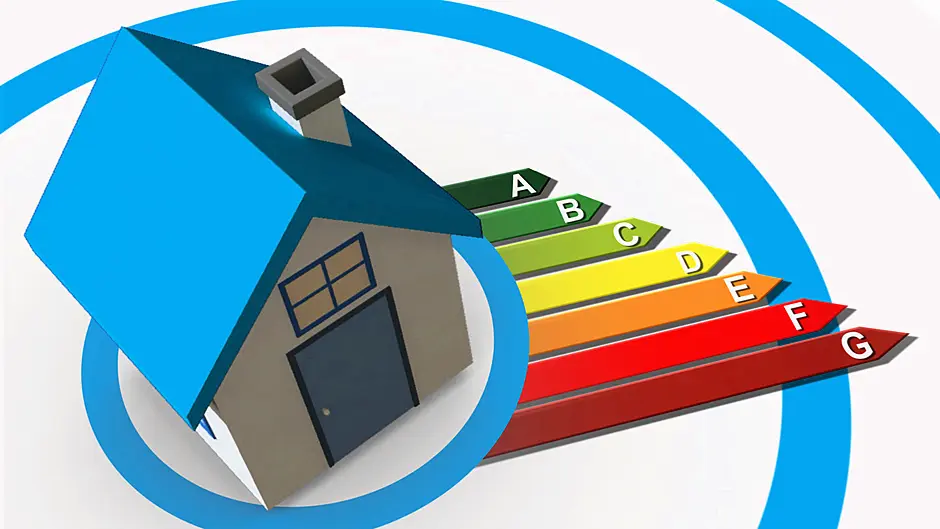WHEN the Building Energy Rating (BER) was introduced over a decade ago, few could have predicted its profound influence on the Irish property market.
BY MAJELLA GALVIN
Initially, these ratings were a minor footnote in property listings, but fast-forward to today, and BER ratings have become one of the most critical factors driving both property prices and buyer interest.
In fact, as awareness around energy efficiency and environmental responsibility grows, a property’s BER could well be the deciding factor in whether it flies off the market or lingers unsold.
This article was featured in our Property West Cork Winter 2024 supplement – you can read the full supplement here!
BER: More Than Just a Number
The BER system, which rates a property’s energy performance on a scale from A to G, has become a defining feature of the real estate landscape.
And it’s not just about a letter grade. According to the Sustainable Energy Authority of Ireland (SEAI), every step up the BER ladder can increase the value of a home by as much as 1%.
This means that upgrading a property’s energy rating could potentially boost its selling price by thousands of euros.
As an estate agent, I have witnessed firsthand the burgeoning demand for energy-efficient homes.
Buyers are ready to invest more in properties that will deliver long-term savings on operational costs.
However, the journey from a low BER to an A or B rating, despite available grants, isn’t always straightforward and is one that has been made more challenging due to surging construction material costs and labour shortages.
Why Buyers Are Focusing on Energy Efficiency
Several factors are driving this change. First and foremost is the rising cost of energy.
Homeowners are increasingly aware that a higher BER rating can mean lower energy bills.
A well-insulated home with an efficient heating system can make a significant difference to the household budget, particularly in a time of fluctuating energy prices.
Secondly, green incentives are making energy-efficient homes more appealing.
The introduction of green mortgages, which offer lower interest rates for homes with a BER of B3 or higher, has incentivised buyers to look for properties that meet this standard.
For many first-time buyers, the opportunity to secure a more favourable mortgage rate adds another layer of financial benefit to purchasing an energy-efficient home.
Even for those not bound by green mortgage criteria, the appeal of a warm, comfortable home with lower running costs is undeniable.
In addition to the BER, many buyers are now requesting the BER Advisory Report, which outlines how the property’s energy performance can be improved.
This report offers valuable insight into potential upgrades, helping buyers budget for future renovations while enhancing the long-term value of their investment.
The Impact on Property Prices
The value of a high BER rating is also evident in the growing price gap between energy-efficient and non-efficient homes.
Research by Geowox, a company specialising in property valuations, has shown that homes rated B or higher are valued 28.6% higher on average than those with lower ratings.
With the median price of a home in Ireland sitting around €330,000, this equates to a €90,000 difference based purely on energy performance.
This trend shows no sign of slowing.
Energy-efficient homes have not only been more resilient in the current property market, but they’ve also seen considerable annual price growth, making them an attractive investment for both homeowners and property investors alike.
Sellers: How to Leverage Your BER
For sellers, showcasing a property’s energy efficiency can be a game-changer.
A home with a higher BER rating is likely to attract more attention and command a higher price.
But how can you make the most of your property’s potential?
Consider energy upgrades before selling. Improving your BER doesn’t necessarily mean a complete overhaul. Simple changes, like adding attic insulation, upgrading to energy-efficient windows, or installing a smart thermostat, can enhance your home’s rating without breaking the bank.
Take advantage of grants. The SEAI offers various grants to help homeowners cover the cost of energy efficiency upgrades. By researching these options and making use of available funding, sellers can increase their home’s value without shouldering the full financial burden themselves.
Keep all documentation. If you’ve made improvements to your home’s energy efficiency, make sure to have certificates, invoices, and receipts ready. Prospective buyers will want proof of the upgrades, and this paperwork will help demonstrate the long-term savings they can expect.
Buyers: Why BER Matters for Your Future
If you’re in the market for a home, paying attention to the BER could save you money in the long run. Not only can a higher rating reduce your energy bills, but it could also open the door to lower mortgage rates if you qualify for a green mortgage.
Before making an offer on a property, be sure to request the BER and the accompanying Advisory Report. This document provides valuable insight into how the property can be further improved, helping you plan for the future. For many buyers, this information is just as important as the asking price.
The Future of Energy-Efficient Homes
The demand for energy-efficient properties is only set to grow. As more buyers prioritise sustainability and long-term savings, homes with high BER ratings will continue to command higher prices. This trend is not just a passing phase—it’s part of a larger shift towards greener living and more sustainable building practices.
For sellers, improving your property’s energy efficiency is one of the best ways to increase its appeal and value. And for buyers, a higher BER rating offers both financial and environmental benefits, making it a key factor in any property search.
Beyond Residential: The Commercial Market
It’s not just residential buyers and sellers who are paying attention to energy efficiency. The commercial property market is also feeling the impact of this trend. Businesses are increasingly seeking out energy-efficient office spaces, not just for the cost savings but for the added appeal to employees who value a sustainable, comfortable working environment.
Landlords looking to attract tenants should consider upgrading the energy efficiency of their commercial properties. This could mean anything from improving insulation and ventilation to installing renewable energy sources. Energy-efficient offices are not only more attractive to businesses, but they also offer a competitive edge in a crowded market.
The future of the property market in Ireland is undeniably green. Whether you’re buying or selling, prioritising energy efficiency is not just about reducing costs or boosting value—it’s about aligning with a growing movement towards sustainability. We’ve come a long way from the days when BER ratings were a footnote. Today, they’re front and centre, and they’re here to stay.
Majella Galvin is an Estate Agent, Chartered Surveyor and RICS Registered Valuer at DNG Galvin Auctioneers, Bandon.
She has been working in the property sector for over a decade and has built up a wealth of knowledge and experience of the property market throughout the years.
Majella holds a BSc in Real Estate & Valuations from the University College of Estate Management, Reading.
She is member of the Society of Chartered Surveyors Ireland and the Royal Institution of Chartered Surveyors.
Majella is passionate about helping people make informed decisions when buying or selling a property.
She writes weekly blogs to help buyers and sellers which can be found on www.dnggalvin.ie
This article was featured in our Property West Cork Winter 2024 supplement – you can read the full supplement here!









